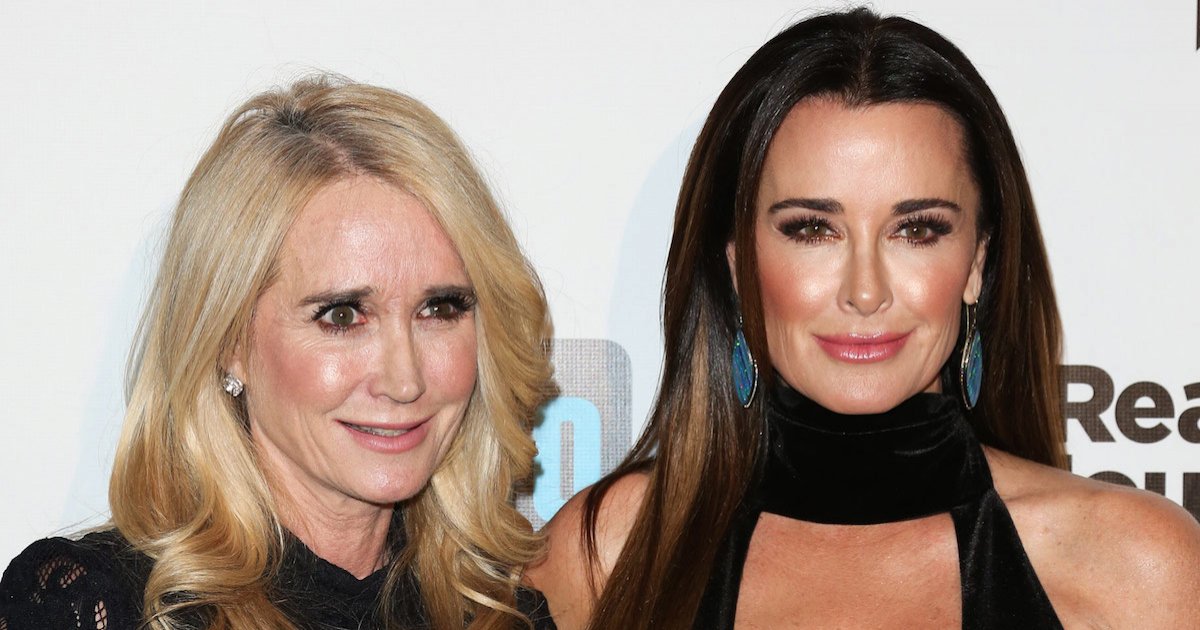In a new episode of The Real Housewives of Beverley Hills, Kyle Richards revealed a long family history of breast cancer which makes her worried for the safety of her sister, Kim Richard. This reveal took place when the sisters visited a surgeon’s office to plan Kim’s breast implant removal surgery for the implants Kim received after her lumpectomy.
Kyle, 51, shared that her mother, Kathleen, passed away in 2002 after battling breast cancer. So, when Kim experienced a breast cancer scare in 2010, the sisters took it very seriously. Kim’s doctors found a benign tumor in her breast and she had to undergo a lumpectomy to remove the tumor. At this time she received breast implants, over time her breast implants deflated and she chose to remove them.
Read MoreDr. Elizabeth Comen explains general basics of breast cancer treatment
Lumpectomy Vs. Mastectomy In Breast Cancer Treatment
When deciding treatment options for breast cancer, it’s up to the patient to decide which surgical procedure they believe is the best fit for them. Once a woman hears she has breast cancer, some assume that undergoing a double mastectomy (fully removing both breasts) is the best way to prevent a recurrence, but experts say that double mastectomies aren’t always necessary. Lumpectomies (also known as breast conserving surgery), which is a surgery that removes a tumor or any abnormal tissue from the breast, has shown enormous benefits.
Related: Recovering from a Lumpectomy
Depending on the size of the tumor, family history, and other factors doctors can evaluate which surgery will be as effective as a double mastectomy.
“As a breast surgeon, my job is to review that data with them, and to help them understand that their long-term survival with mastectomy is equivalent to that with lumpectomy and radiation,” says Dr. Sarah Cate, the lead physician for the Special Surveillance Breast Program at Mount Sinai Beth Israel.
Dr. Sarah Cate says surgical options in breast cancer should be up to the patient
The Importance Of Knowing Your Family History Of Cancer
According to Dr. Ophira Ginsburg, Director of the High-Risk Cancer Program at NYU Langone's Perlmutter Cancer Center, 10% of breast cancers are hereditary. Knowing whether you’re at increased risk of a breast cancer diagnosis can be a helpful way in catching the disease quick and in the early stages, which provides more treatment options. In order to learn about your risk, Dr. Ginsburg recommends women go through genetic testing to learn about possible gene mutations which could make them more at risk of breast cancer.
Related: Genetic Testing Is on the Rise Here's Why to Get It Done Through a Health Care Provider
“The real question of who is going to qualify for genetic testing is, to be honest, a moving target,” says Dr. Ginsburg. “Nowadays, you can even self-refer and ask for testing. We encourage only those who have a family history to really get that kind of service if you need it.”
In a genetic test, your doctor will ask you about your family history and details on the types of breast cancer you or your family members had. From there, hereditary tests are done through a saliva or blood test.
Dr. Ophira Ginsburg explains when genetic testing is important
Learn more about SurvivorNet's rigorous medical review process.


